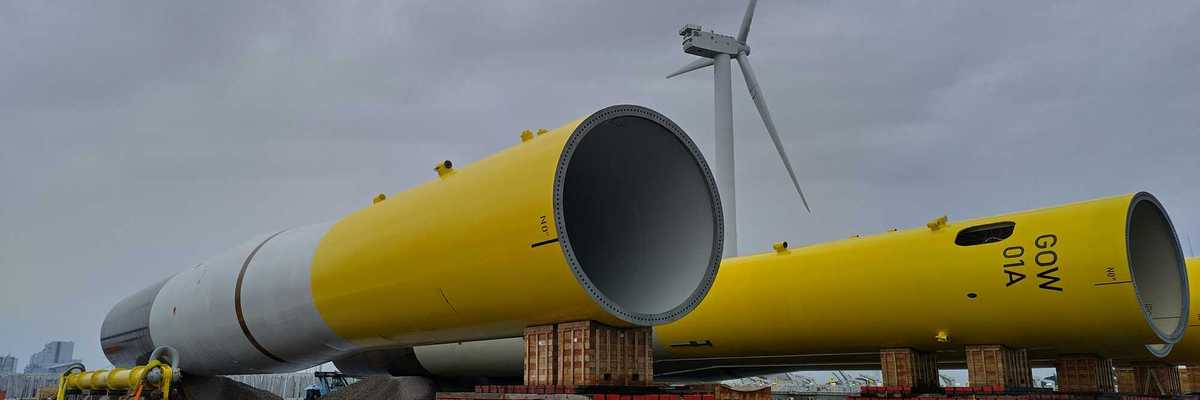phoenix
Phoenix endures unprecedented 100 consecutive days of 100-degree heat
Phoenix hit 100 degrees for the 100th straight day, shattering the previous record of 76 days in 1993 and highlighting the intensifying heat in the Southwest.
Ian Livingston, Erin Patrick O'Connor, and Naema Ahmed report for The Washington Post.
In short:
- Phoenix set a new record of 100 consecutive days over 100 degrees, surpassing the previous streak by over three weeks.
- Vulnerable groups, including outdoor workers and the unhoused, are at greater risk, with heat-related deaths on the rise.
- The city's average summer temperature has risen 8-9 degrees since the late 1800s, driven by greenhouse gas emissions and urbanization.
Key quote:
“I’ve been homeless for 10 years. I can’t do another summer out here. No way.”
— Ron Wishon, Phoenix homeless resident
Why this matters:
This extreme heat threatens public health, especially for those without adequate shelter. As urbanization and climate change intensify, cities like Phoenix could face even hotter, more dangerous summers.
Related EHN coverage:
Phoenix uses ice immersion to combat heatstroke as temperatures soar
Phoenix firefighters are employing ice immersion techniques to treat heatstroke victims amid the season's first heat wave in the Southwest.
In short:
- The Phoenix Fire Department is using cold water immersion to treat heatstroke victims during transport to hospitals.
- This method, familiar to marathon runners and military personnel, can lower body temperatures rapidly and improve survival rates.
- Phoenix has also introduced overnight cooling stations as part of new measures to combat rising temperatures and heat-related deaths.
Key quote:
“We’ve been seeing a severe uptick in the past three years in cases of severe heat illness.”
— Dr. Paul Pugsley, medical director of emergency medicine with Valleywise Health
Why this matters:
As temperatures in Phoenix reach extreme highs, innovative treatments like ice immersion are crucial for preventing heat-related deaths. Heatstroke, a severe form of heat illness, occurs when the body's temperature regulation fails and internal temperatures rise dangerously high. The condition can lead to organ damage or even death if not treated swiftly. Traditional cooling methods, such as fans and misting, often fall short when faced with the rapid onset of heatstroke symptoms.
Heat wave in Phoenix claimed lives of more than 400 people
A deadly heat wave in metro Phoenix last summer caused over 400 fatalities, highlighting the severe impact of extreme temperatures on vulnerable populations.
In short:
- Priscilla Orr, 75, died from heat exposure in a supermarket parking lot after losing her home to a scam.
- Over two-thirds of the 645 heat-related deaths in Maricopa County occurred during a 31-day streak of temperatures above 110°F.
- Victims ranged widely in age and background, including the elderly, homeless, and those with health issues.
Key quote:
"This should not have happened to her. She should have lived until she was 100."
— Anna Marie Colella
Why this matters:
This tragic event emphasizes the need for strategies to mitigate the effects of climate change. Extreme heat, often exacerbated by urban heat islands, can be especially dangerous for the elderly, young children, and those with preexisting health conditions.
Local elections could reshape Phoenix's energy policy
In a pivotal turn for Phoenix's energy future, local elections could usher in a wave of clean energy reforms, challenging the city's longstanding reliance on fossil fuels.
In short:
- Upcoming utility board elections in Arizona and Nebraska could significantly influence America's energy landscape, pivoting toward sustainable sources.
- Corruption scandals and the influence of money in utility elections have spotlighted the need for transparency and change.
- Clean-energy advocates aim to transform the Salt River Project, advocating for increased solar energy use and democratic voting reforms in utility elections.
Key quote:
"We’re looking to make history. We want to get serious about greenhouse gas reductions, set retirement dates for Salt River Project coal plants and increase solar in the district.”
— Lauren Kuby, former vice mayor of Tempe, Arizona
Why this matters:
Local politics can both facilitate and impede progress. On one hand, supportive leadership can drive the adoption of renewable energy through favorable policies and investments. On the other, opposition from entrenched interests, such as fossil fuel companies or sectors dependent on traditional energy sources, can slow or derail initiatives.
Q&A: After its hottest summer on record, Phoenix's mayor outlines the city's future
Mayor Kate Gallego answers how the city is looking to address extreme heat and drought to build a more sustainable city.
After summer's extreme weather, more Americans see climate change as a culprit
Kathleen Maxwell has lived in Phoenix for more than 20 years, but this summer was the first time she felt fear, as daily high temperatures soared to 110 degrees or hotter and kept it up for a record-shattering 31 consecutive days.









